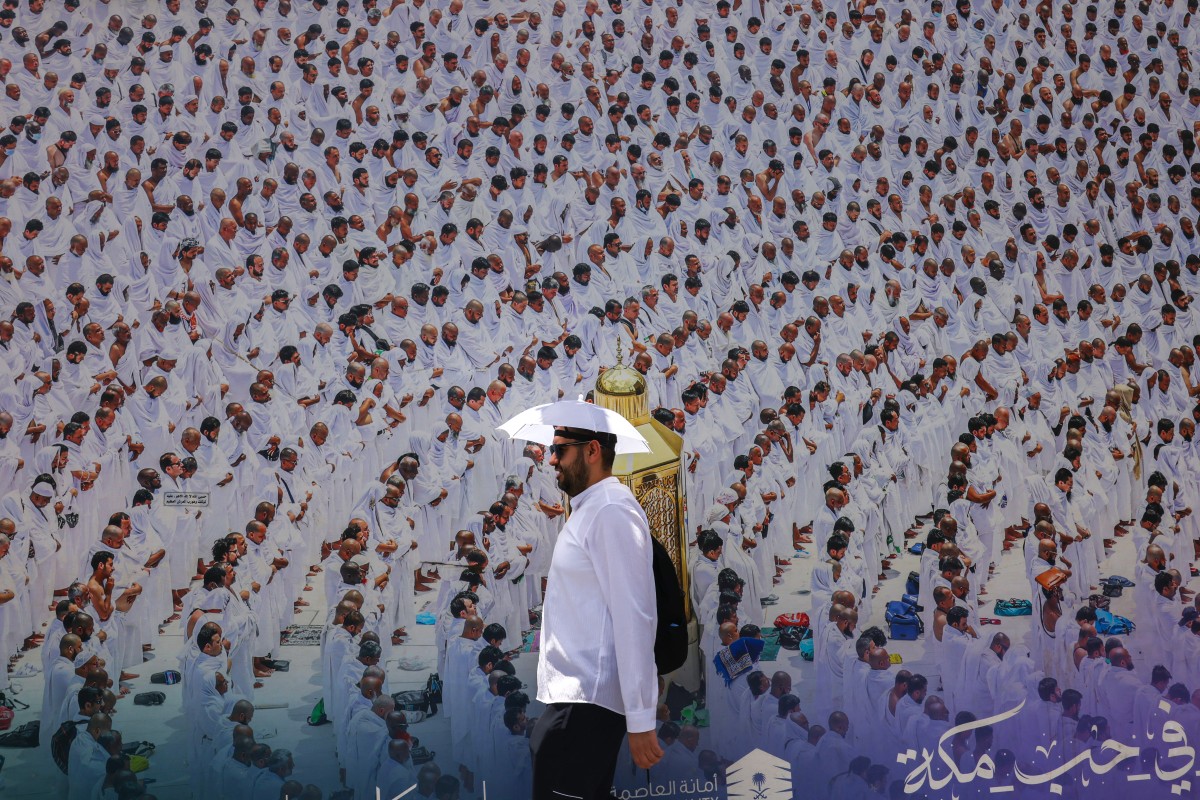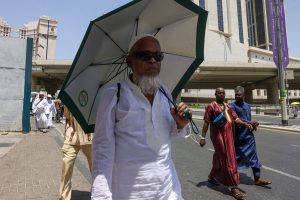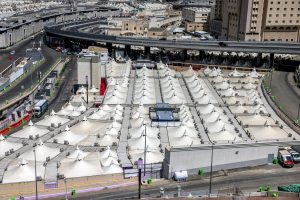
SAUDI ARABIA WELCOMES OVER 1.3 MILLION PILGRIMS FOR HAJJ AMID SWELTERING HEAT AND HEIGHTENED SECURITY
By Aishat Momoh. O.
More than 1.3 million Muslim pilgrims have arrived in Mecca ahead of the annual hajj pilgrimage, with Saudi authorities ramping up safety and heat-mitigation measures in response to soaring temperatures and last year’s deadly heatwave.
The 2025 hajj officially begins Wednesday, drawing Muslims from around the world to one of the largest religious gatherings globally. The pilgrimage, a key pillar of Islam, is obligatory at least once in a lifetime for all able Muslims.
With temperatures already exceeding 40°C and forecast to rise, officials are keen to avoid a repeat of the 2024 tragedy that claimed the lives of 1,301 pilgrims. Saudi Arabia’s Health Ministry reported on Monday that 44 cases of heatstroke had already been recorded.
In preparation, authorities have mobilised 250,000 personnel across 40 agencies, expanded shaded areas by 12 acres, stationed thousands of additional medical staff, and deployed more than 400 cooling units. Artificial intelligence and drone surveillance will also be used to manage crowd flow and monitor heat exposure in real time.
“This is really a blessing from Allah,” said Abdul Majid Ati, a pilgrim from the Philippines. “We feel so peaceful and safe in this place.”
Pilgrims have expressed both spiritual joy and concern over the extreme heat. “Very, very, very hot,” said Abdulhamid, a 27-year-old Nigerian, noting that he never steps out without sunglasses.
Authorities have launched a sweeping crackdown on unregistered pilgrims, who were disproportionately affected during last year’s heatwave due to a lack of access to air-conditioned facilities. Without official permits, which are distributed via lottery under a country-based quota system, unregistered pilgrims risk arrest, fines, and a 10-year ban from entering Saudi Arabia.
The hajj has previously seen deadly crowd-related incidents, including the 2015 Mina stampede, which killed over 2,000 people. Security and logistical improvements have since been introduced to prevent a recurrence.
Saudi Arabia derives billions in revenue from the hajj and umrah pilgrimages, while the successful hosting of these religious rites continues to bolster the prestige of the kingdom and its monarch, known as the Custodian of the Two Holy Mosques.
For many pilgrims, like 52-year-old Mariama from Senegal, the journey to Mecca is the fulfillment of a lifelong dream. “I was dreaming about it, thinking about it every time to come here to do the hajj,” she said.
With the hajj underway during the peak of summer, Saudi officials continue to urge pilgrims to stay hydrated, avoid overexertion, and adhere to safety guidelines.



